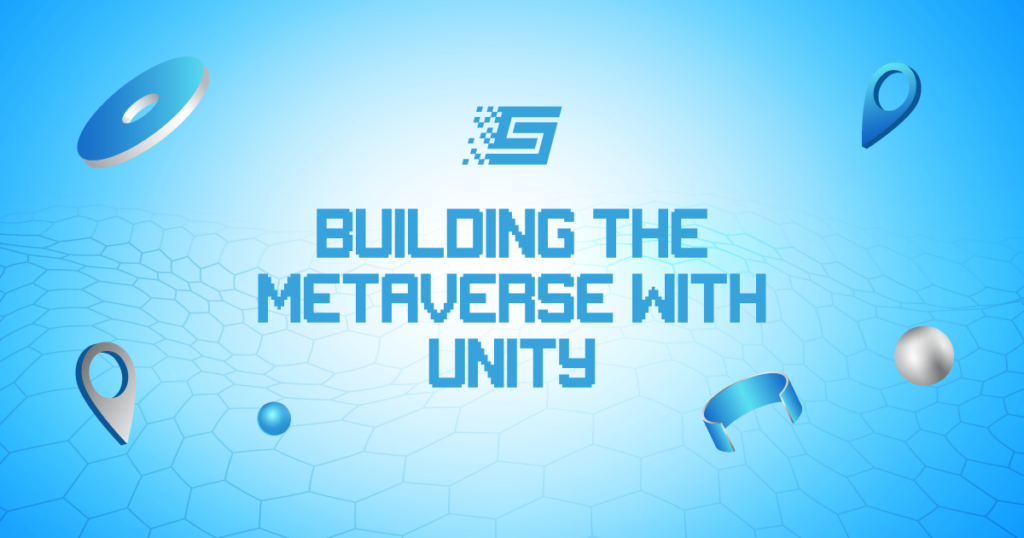Why Gaming Companies Should Adopt Blockchain Tech
With over 2 billion gamers across the world, gaming is turning out to be a compelling use case for blockchain.
The integration with cryptocurrencies and unique non-fungible tokens (NFTs) has revolutionized the blockchain, bringing endless possibilities to the multi-million dollar industry.
Unlike most online games that are traditionally based on a centralized model, blockchain follows a decentralized structure, which makes its ecosystem almost borderless and transparent.
It’s no wonder blockchain gaming is attracting millions of gamers and investors globally.
Blockchain Gaming Overview
A blockchain is a series of data blocks on a network, and the best thing about it is that it cannot be altered or relocated. It remains transparent to everyone as the data is public. This structure offers a great way of preserving a complete record of everything that has transpired on the network.
The market value of blockchain gaming surpassed 3 billion USD in 2021, with the figure expected to rise to 39.7 billion USD by the year 2025.
The amalgamation of the two realms of blockchain and gaming created ample opportunities for the gaming industry. These games offer players digital assets that provide value even beyond the game. When integrated with cryptocurrencies and NFTs, blockchain can be used to buy in-game assets that can be traded for cryptocurrencies and real-life money. As soon as gamers earn NFT rewards, they will gain complete ownership of the assets, which can be traded or sold in and outside the game.
A recent survey by the Blockchain Game Alliance (BGA) group reveals that 85% of survey respondents said that asset ownership is the most prominent advantage of blockchain games. This is in stark contrast to traditional centralized gaming models that strictly prohibit any sale of in-game assets in external markets.
Unlike traditional games, which are highly centralized, making the game developers control all of the assets and currency, blockchain games are decentralized. This means that the game is not owned or controlled by a central authority but rather by anyone who possesses digital assets and any game objects (players, in this case).
How Blockchain Is Transforming The Gaming Industry
Players and gaming industry developers usually face challenges in the form of high fees, centralized control, unsafe data, fraudulent activities, and hidden costs.
But blockchain resolves many of these problems. Here’s how it is happening.
A Safe And Secure Environment For Developers And Entrepreneurs
These blockchain platforms use powerful data encryption technologies such as the private key-public key for securing crypto transactions. With the technology we are currently using, it is almost impossible to hack these data encryption techniques – making them safe. Hackers cannot destroy a decentralized blockchain network because there is no single server to beat, but rather a network of servers that store the data.
Blockchain networks use’ Proof of Work’ (POW) and other consensus algorithms that keep the network secure. Hackers cannot delete or alter an existing network’s transaction history in the blockchain.
Cost-Effective Payment Processing
The gaming industry is accessible around the world.
In an online game, players usually have to pay expensive fees. Players can leverage fiat currencies, but the transactions aren’t cost-effective.
A solution was needed for transferring assets without it taking days to process payments, and blockchain enables instant payments across the world without any restrictions.
No matter the size of the payment, blockchain provides an effective decentralized method. There is no way scammers can steal information or manipulate transactions.
Players Own The In-Game Assets
One key benefit of blockchain gaming is that players own their assets. Blockchain-based games use smart contracts to govern transactions, which makes all the difference.
Smart contracts are executed automatically immediately after the conditions coded in them are fulfilled, and the result is irreversible. All in-game assets bought with smart contracts are transferred to the players’ public addresses.
The blockchain records smart contract execution results that are immutable. Nobody can alter the public address where the assets are stored, so no one can modify the ownership of in-game assets.
Safety And Security Of Gaming Items Storage
Centralized servers are easily hacked, and once hackers break through the encryption, all of the assets stored there can be theirs. Blockchain technology can change that. Players store the collectibles securely in their crypto wallets when purchasing digital collectibles in blockchain-based games.
For instance, if you visit the Enjin Coin website, you will notice an Enjin wallet for players, where they can store cryptocurrencies and secure their in-game assets.
Cutting Down The Price Of Gaming Assets
Blockchain brings the benefit of affordable micro-transactions, which enables developers to sell their power-ups at low prices without losing profits, and users can also control how much they are willing to spend when playing online games.
Critical Challenges Of Blockchain In Gaming
While there is a surge in the adoption of blockchain games, their growth trajectory is impeded by many challenges. A lot of these challenges weren’t anticipated earlier, but with the latest advancements in tech, there is hope.
Limited Awareness
There is a general lack of awareness surrounding blockchain and NFT technologies. People might have heard of these technologies, but at the moment, they mostly consider them more of buzzwords. As a result of this, blockchain-based games and their unique benefits don’t get the kind of attention they deserve.
Scalability Issues
As games become more popular and evolve, they have to continue scaling along. However, blockchain gaming systems are finding that maintaining the additional load of transactions and scaling is quite challenging.
Regulatory Uncertainty
The regulatory framework surrounding cryptocurrencies and NFTs will sometimes discourage gamers and developers from exploring blockchain games to their full potential.
Blockchain-based crypto games and collectibles present various legal risks, and you might fall into avoidable legal pitfalls without sufficient knowledge of the relevant issues and careful structuring.
User Experience
Onboarding mainstream gamers into blockchain games is certainly not a smooth process.
Players must perform many unique steps, like downloading the Metamask Chrome extension wallet, generating an address, and signing up with an exchange.
Crypto-savvy users will be okay doing all this, but it might be a bit too complex for the average mainstream gamer.
Conclusion
Blockchain certainly has tremendous power to reshape the architecture of all industries, including gaming. Additionally, blockchain creates many new opportunities and business models that are transparent and digitally persistent.
The steady surge in the number of users every year means demand for blockchain-enabled solutions is rising.


